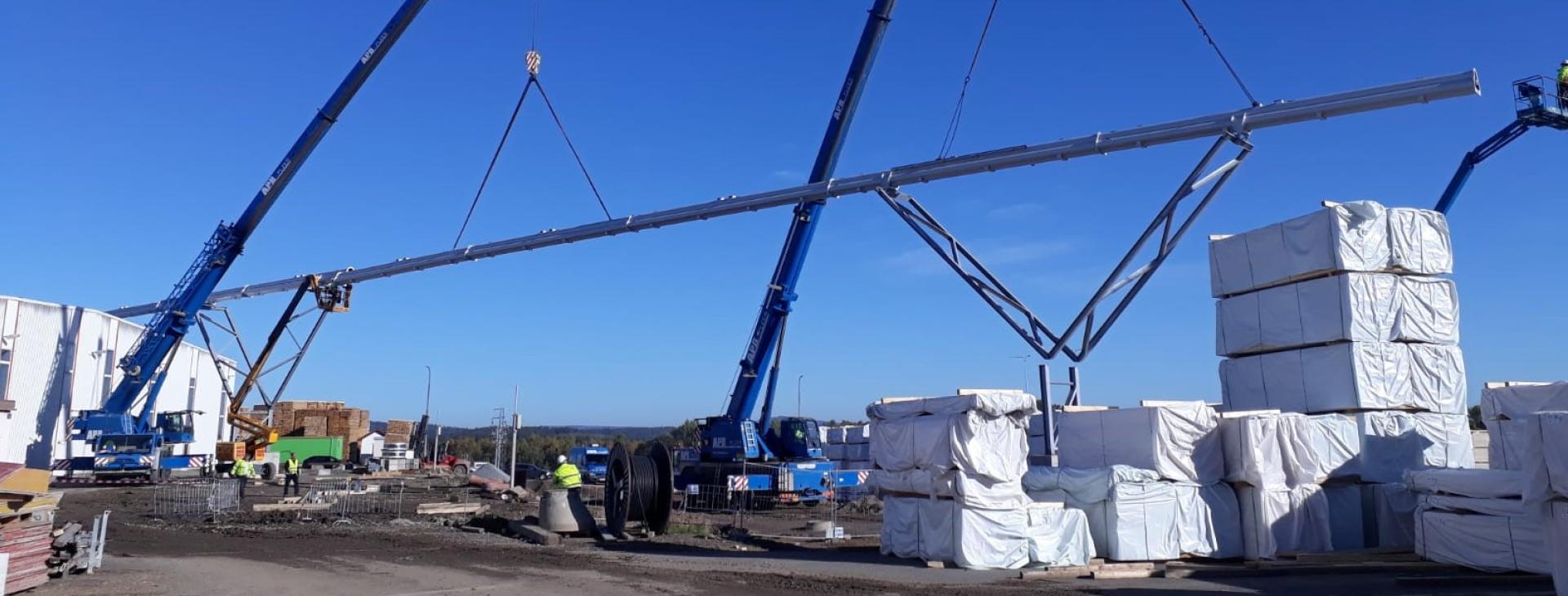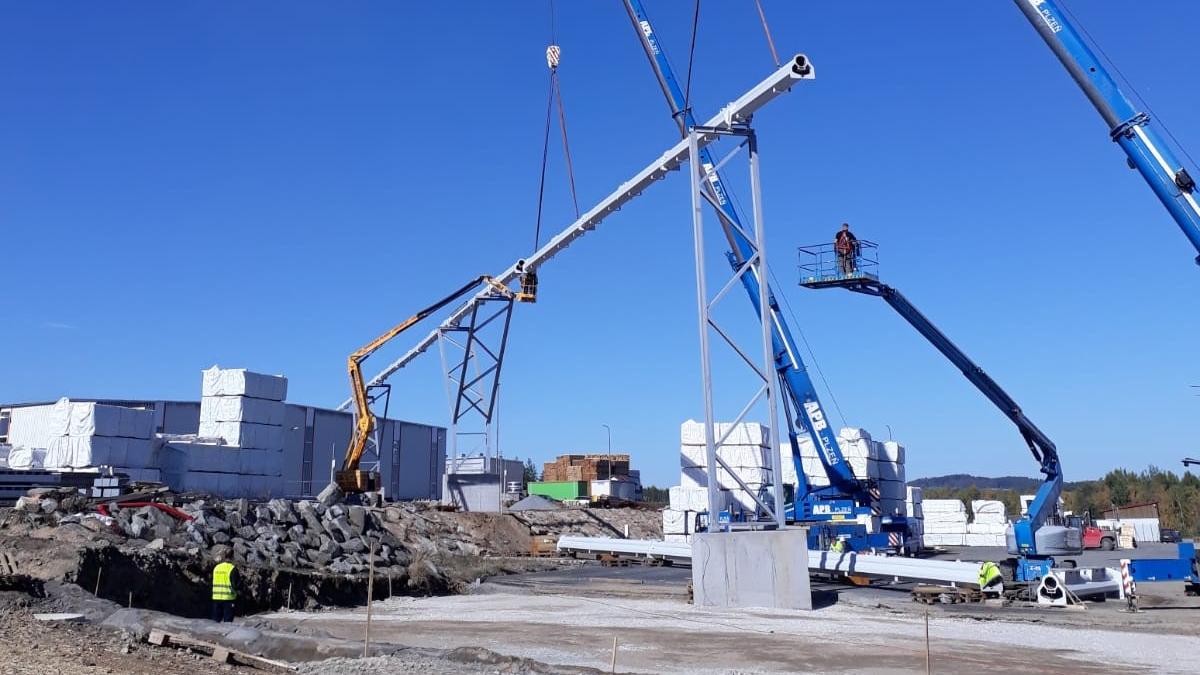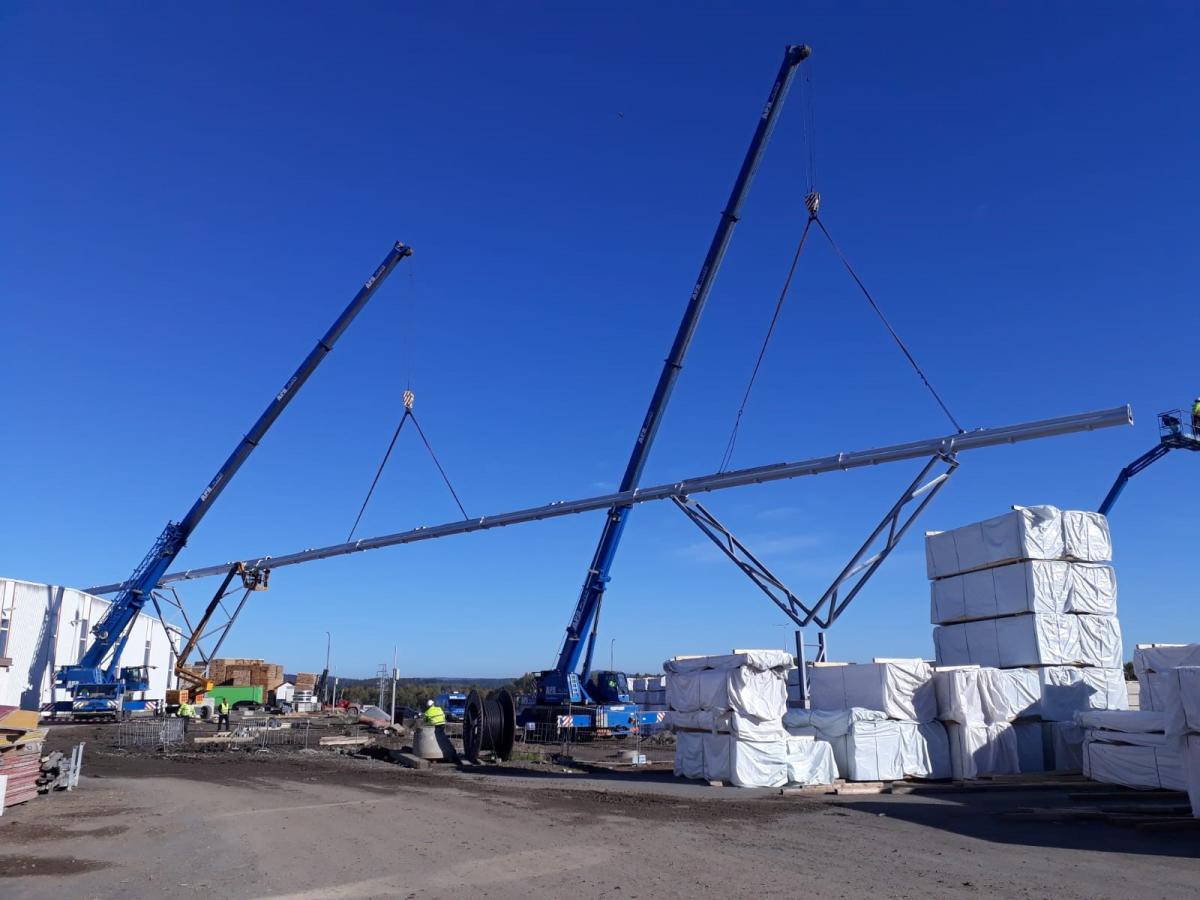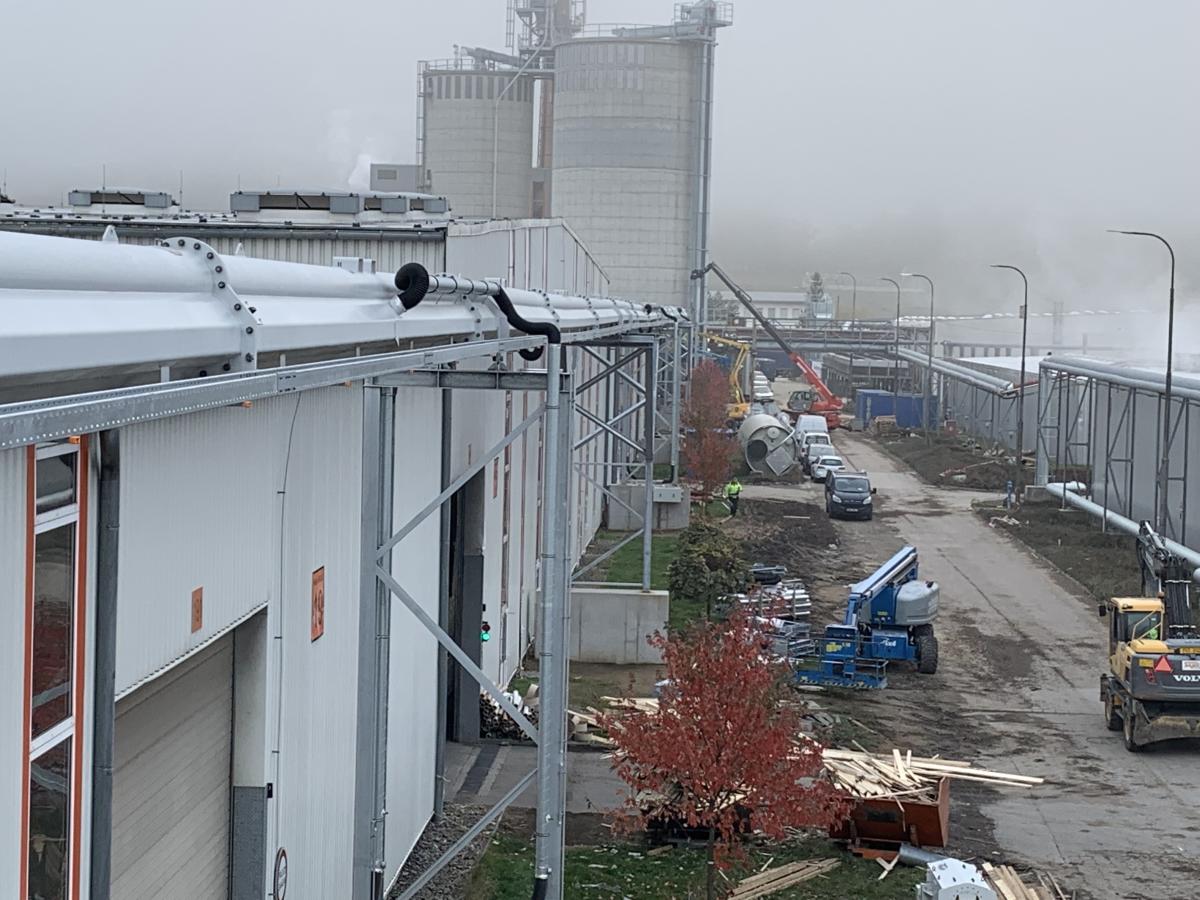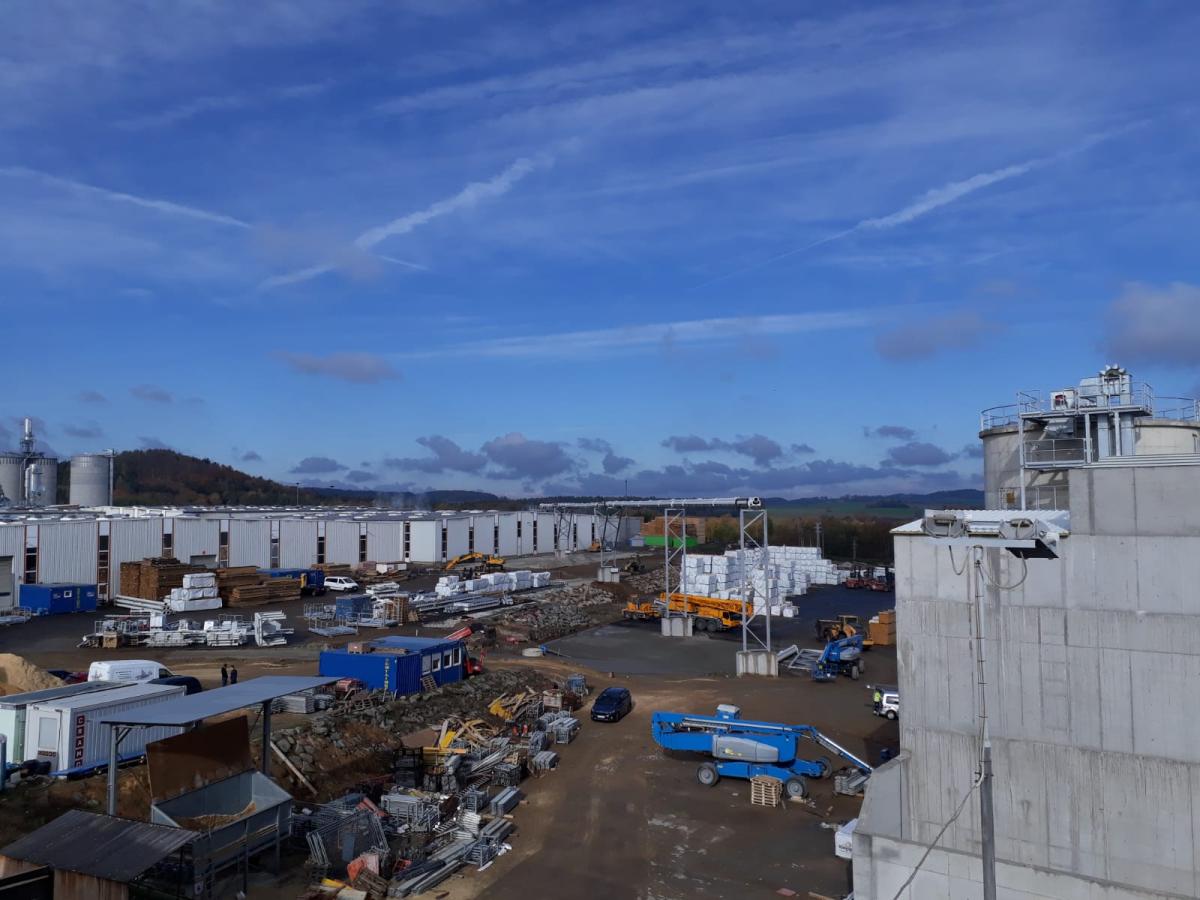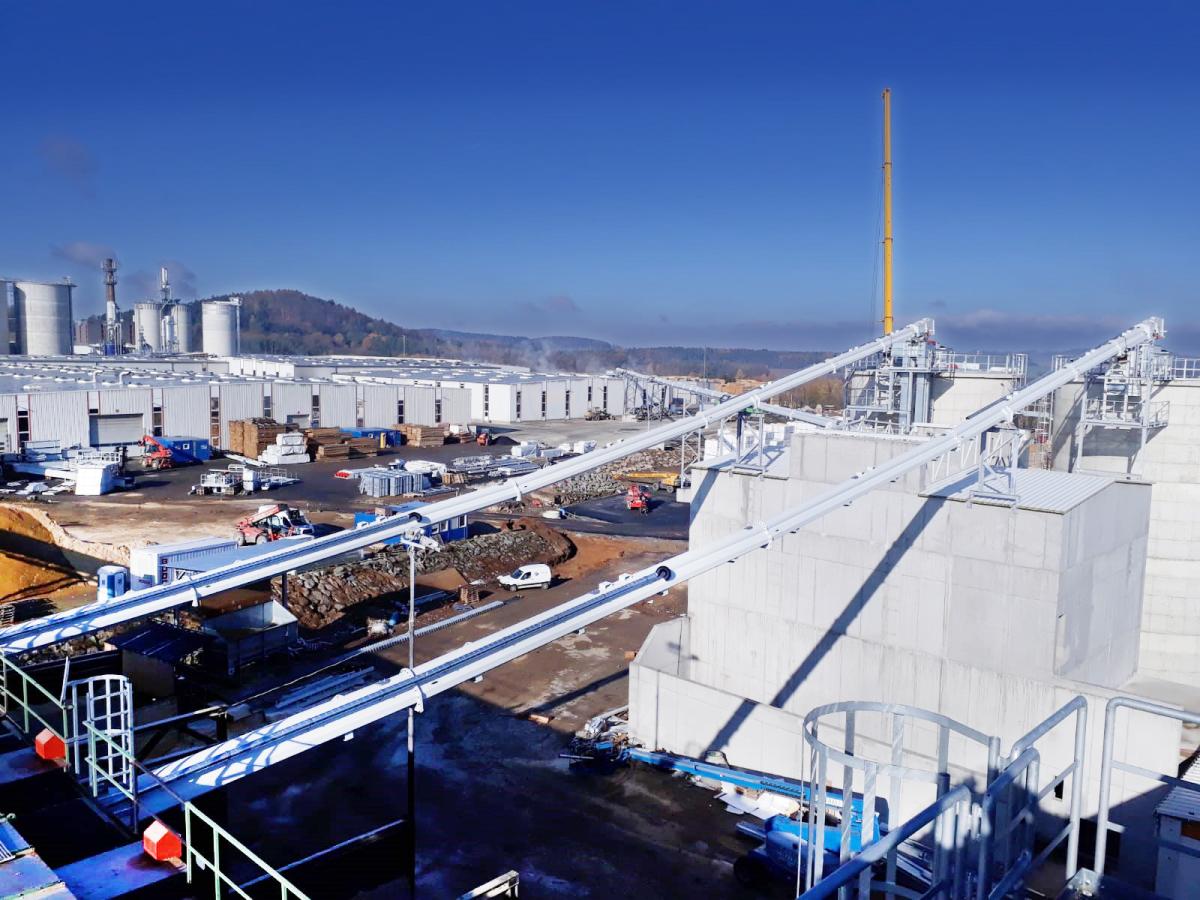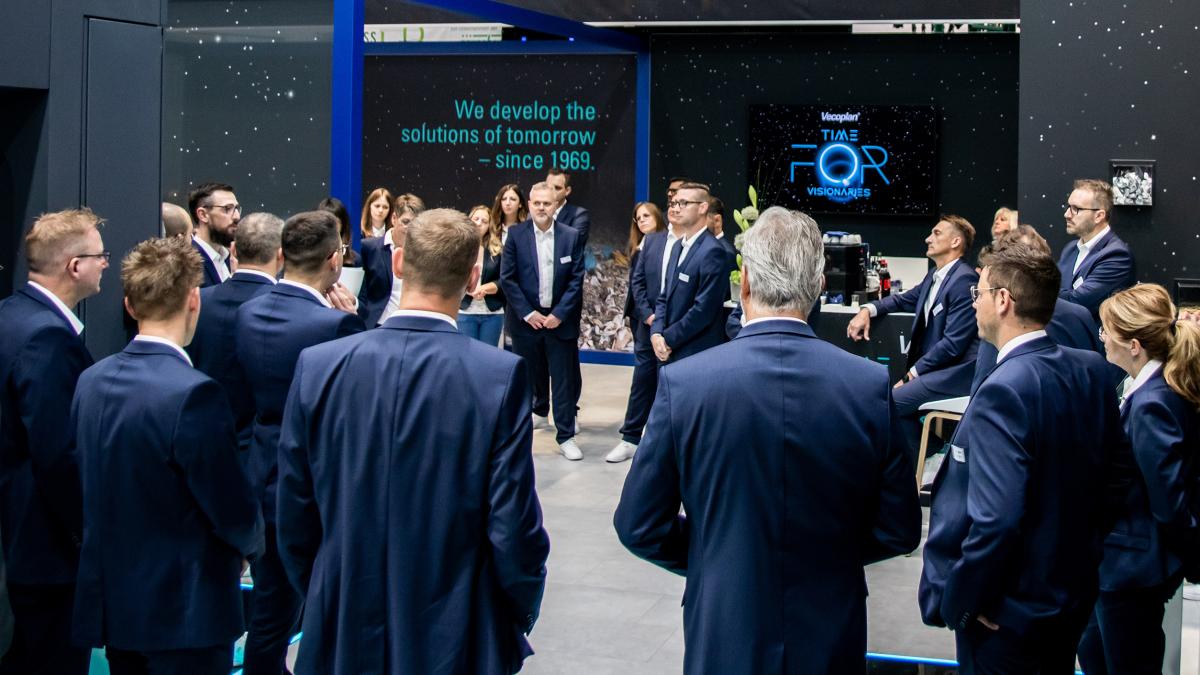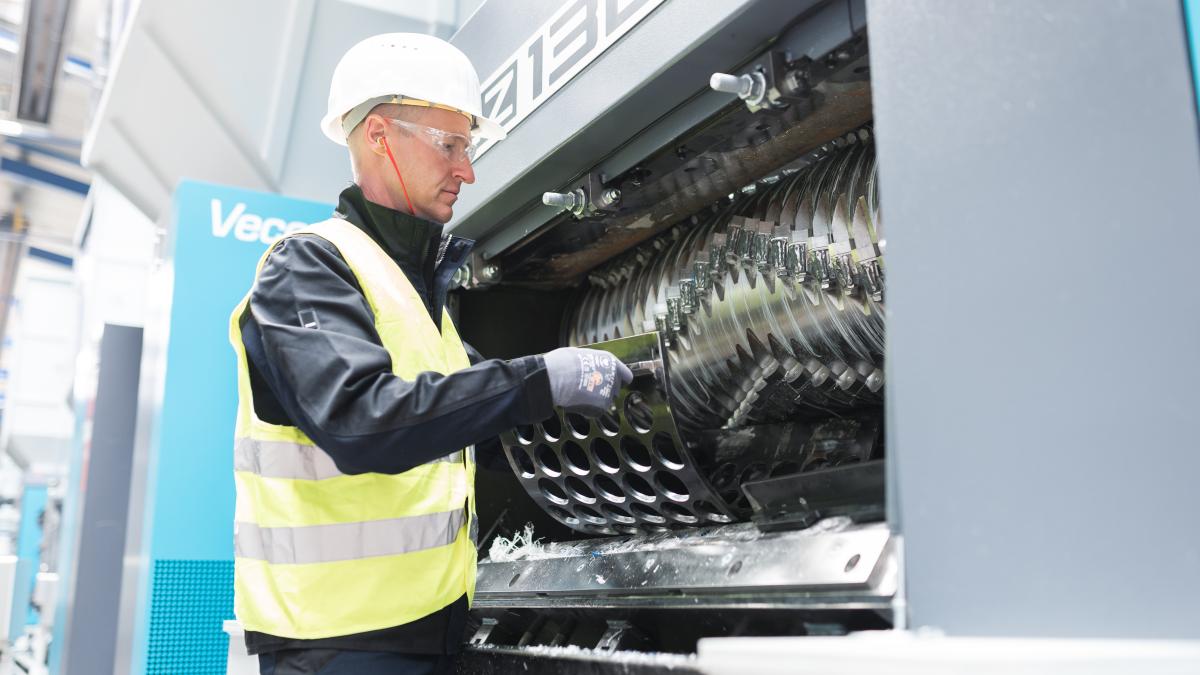Major construction site in the Czech Republic
“Last year we installed four VecoBelt pipe belt conveyors for a major wood processing company,” says Krieger. “They had a total length of more than 500 metres, including the supports.” The contract also included steel construction and the final inspection. The customer processes round timber into sawn timber and solid wood panels. It also produces wood pellets, mainly from waste products. To close the recyclable materials loop, the fuel specialists there refine residual waste like sawdust into carriers of sustainable bioenergy. The Vecoplan systems were needed to convey wet wood chips and wet sawdust for the production lines.
A challenge? Not for us!
“This project presented my colleagues and myself with one or two challenges,” says site manager Krieger. “For example, the customer had commissioned a surveyor to mark the axes of the conveyor route. Unfortunately, this ‘survey’ by the engineer was a bit off’, in the true sense of the word – because the measured axes didn’t end up where they were supposed to be.” So what had happened? Were Vecoplan’s calculations at fault, or were the surveyor’s measurements incorrect? A subsequent inspection proved that it was the surveyor who was wrong, because when the customer called in a different engineering office, the new surveyor re-calibrated the reference points – and both the supports and the VecoBelt sections were all in the rightplaces. Relief for the customer and Norman Krieger!
Once the preparatory work had been completed, a six-member Vecoplan team tackled the actual assembly. “This part of the project didn’t run very smoothly either,” says Krieger. “We had to interrupt the work several times because some foundations hadn’t been completed.” To avoid interrupting the customer’s production, the Vecoplan specialists also had to work while the plant was operating, so there was often insufficient space (or none at all) for the upcoming assembly work – and this even affected crane positioning and storage areas. Intensive planning and a great deal of consultation with the customer and all the companies involved were needed to solve these issues. The cooperation with a contracted crane company also proved to be a tough challenge.
So how was the crane situation cleared up?
“100-tonne mobile cranes mounted on trucks were supposed to be used for lifting the Veco- Belt sections,” says Krieger. “We had to plan and coordinate this with the crane supplier.” But something was very wrong! Krieger quickly realised that the mobile cranes delivered were much larger – and above all more expensive – than the ones he had ordered. This led to “friendly” discussions with the crane supplier. The result was that another crane company with reasonable prices and suitable mobile cranes was contracted to carry out the work – but as you can well imagine, these delays didn’t exactly help the team to adhere to their tight schedule.
Assembly completed successfully
In general, meeting the contractual deadlines was one of the biggest challenges in this project, because some of the companies involved more or less ignored this aspect of the job. The assembly work had to be repeatedly postponed. “We wanted to start in mid-April 2019 – but we couldn’t start until the beginning of September,” says Krieger, shaking his head in disbelief. “In the end, we managed to complete this project successfully, despite all the issues involved. It was often turbulent, but also instructive – and the customer was satisfied.” The assembly work alone took eight weeks.
Conclusion
However, site manager Krieger does have one fond memory of that project – the food in the canteen. It was relatively cheap and delicious, even if he often had no idea what was in some of the country’s typical dishes.
The site manager, his deputy Torsten Moldrickx and the assembly team were able to complete the project shortly before Christmas. Krieger’s verdict? “We needed all our expertise and experience for the project, we had to interact correctly with people in a different country – and we had to call on 100 % of our organisational talent to get the job done on time. These qualities are very often necessary when you’re on a foreign assignment – and that’s also what makes our work so exciting.”
